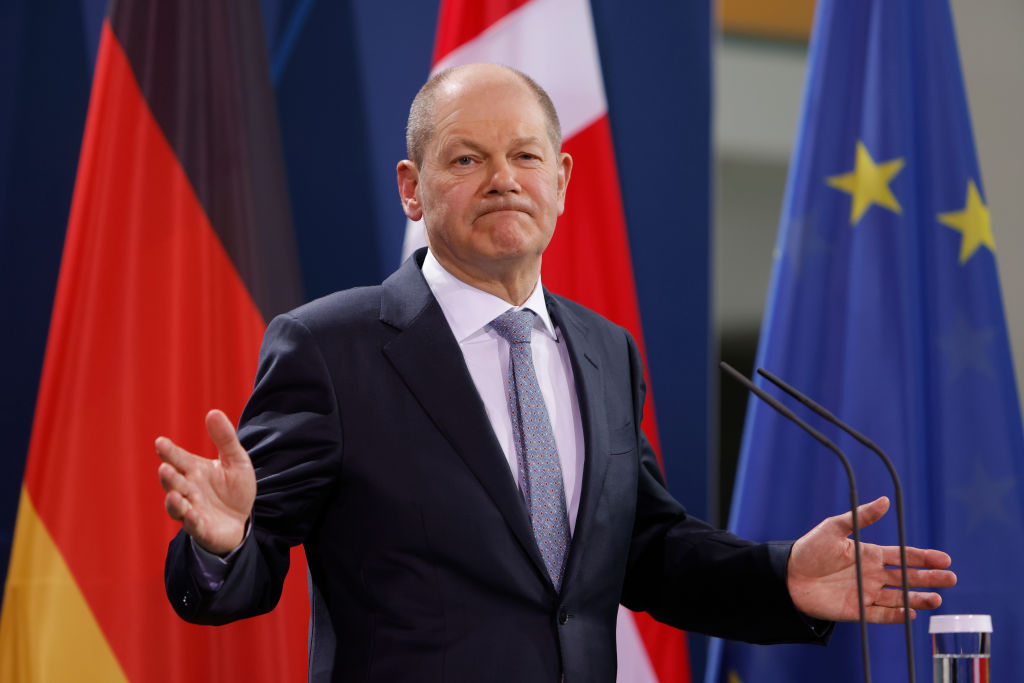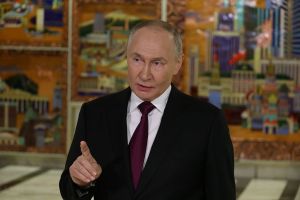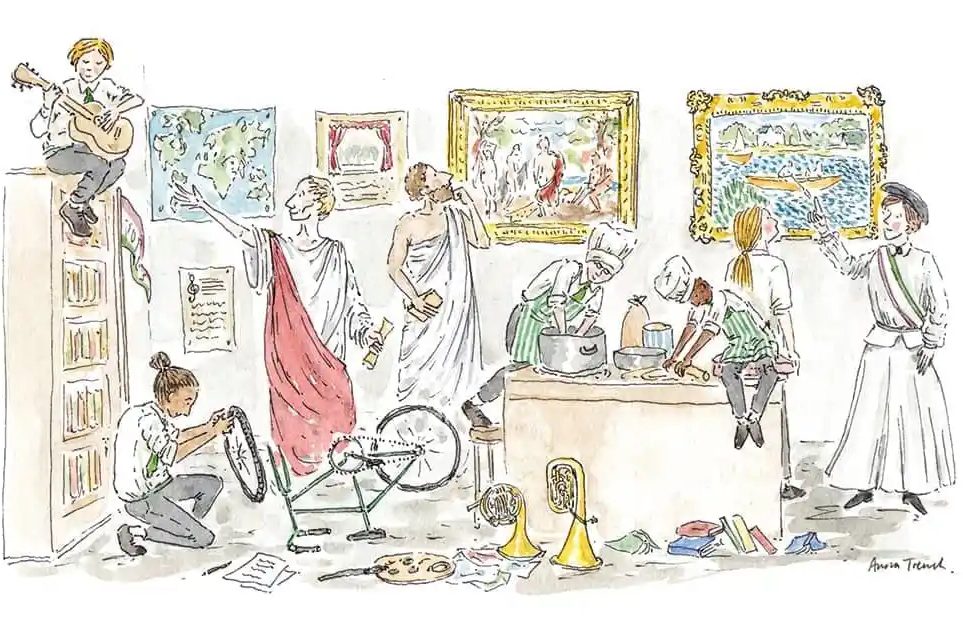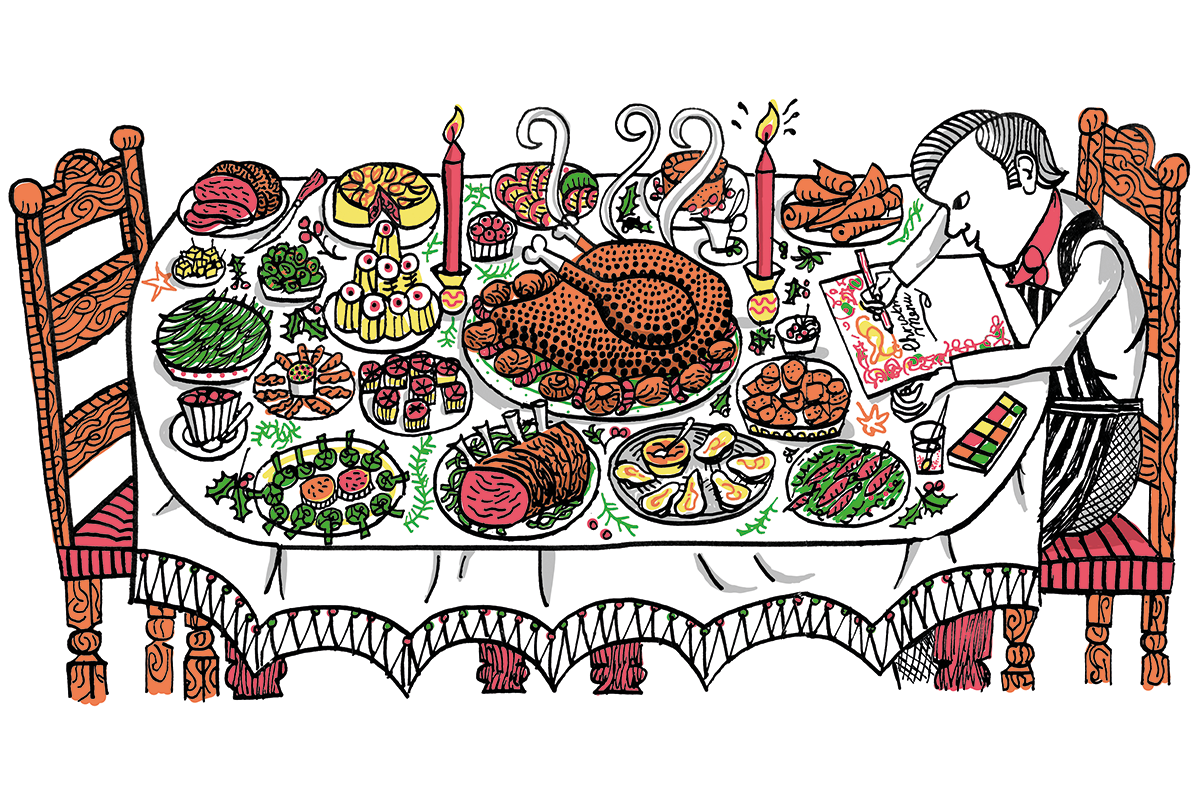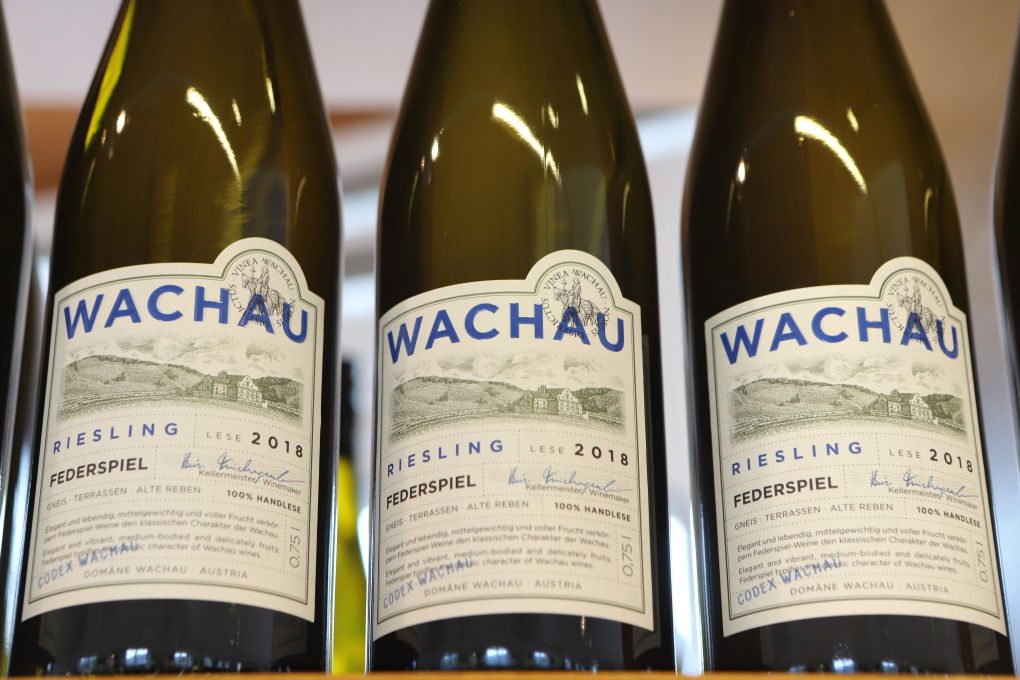A recent survey of Germans done by Forsa, amongst the most reputable polling institutions in that country, shows that at least in one way, the Cold War has not quite ended.
A majority of West German respondents (52 percent) blame Russia for escalating the conflict with Ukraine, while a plurality of East German participants (43 percent) blame the United States. All respondents, meanwhile, plead for peace in the region and expressed fear of a looming war between Europe and Russia.
The political repercussions here are very real. The generation born in the late 1960s, having been completely educated in the East German communist dictatorship, currently constitutes the most significant single voting block in the East. That said, it isn’t just anti-Americanism that explains Germany’s hesitancy to draw clear lines in the Russia conflict.
Chancellor Olaf Scholz has only been in office for a few months, having taken over the post from one of the longest-serving heads of government in Europe, Angela Merkel. Scholz’s social-democrat party, the SPD, has been subjected to criticism over its ambiguity over Russia, not least because of the involvement of former SPD chancellor Gerhard Schröder with Russia’s state-owned energy company Gazprom.
As chancellor, Schröder was a fervent advocate of the gas pipeline Nord Stream. Days before he left office, he personally oversaw German financial guarantees of €1 billion for Nord Stream, and soon after stepping down, he accepted Gazprom’s nomination to be head of the shareholders’ committee of Nord Stream AG. As far as connections to Russia go, it doesn’t get any clearer than that.
Germany’s Greens, now a member of the governing coalition, had vowed to end the ongoing project of Nord Stream’s successor, Nord Stream 2. Yet despite their advocacy during the election, the new government, of which the Greens are a member, has not confirmed an end to the pipeline.
On the contrary, Germany is the largest European importer of Russian gas, dwarfing other nations at more than 55 billion cubic meters imported in 2019. Now that Berlin has phased out almost all of its remaining nuclear power plants, and that wind and solar power have proven to be unreliable energy generators, Germany’s dependence on Russian gas imports is more prominent than ever. On top of that, Germany has the highest energy prices in the developed world, with household spending on heating and electricity far steeper than in neighboring France.
Chancellor Scholz is thus facing an existential problem: as long as the winter goes on, applying sanctions to Russian gas imports would worsen the energy crisis and could plunge his government into a political crisis. The not-yet-completed Nord Stream 2 exposes him to a sunk cost fallacy: with billions already invested, turning back now is politically challenging. All of this has reduced the chances of a united response to Russia by the European Union. Germany offers only mediation talks in Berlin.
The conflict in Ukraine is also likely to exacerbate Europe’s food price inflation. While Ukrainian food imports represent only 5 percent of total European agri-food imports, they do make up 26 percent of honey imports, 41 percent of rapeseed, and 88 percent of sunflower oil. Adding to that, products processed in non-EU countries are also dependent on Ukrainian imports, thus potentially causing a chain reaction if the government were to go to war with Russia.
However, even the task of arming Ukrainian forces in the wake of a possible Russian attack has fallen on deaf ears in Germany. Berlin has reportedly stopped Estonia from sending arms to Ukraine and blocked Ukrainian attempts to secure weapons from NATO. The announcement that Germany was sending 5,000 helmets to Kyiv has caused widespread mockery in Europe. Kyiv mayor Vitali Klitschko reacted to the news by saying, “The behavior of the German government leaves me speechless. The defense ministry apparently hasn’t realized that we are confronted with perfectly equipped Russian forces that can start another invasion of Ukraine at any time. What kind of support will Germany send next? Pillows?”
The looming conflict is unlikely to be a pillow fight. A hundred thousand Russian troops have been deployed to Ukraine’s border in what is quickly becoming a World War Three-ish button scenario. While Russia is ramping up its military presence, Europe is a long way away from the courage it once showed in resolving to defend Ukrainian independence. German chancellor Scholz’s approach is milk to Margaret Thatcher’s brandy. In 1987, Thatcher brilliantly debated Russian journalists on Soviet television, a move that even the interviewer framed as her having “won the debate.”
One only needs to check a map to realize what a hostile takeover of Ukraine by Russia would mean for Europe. Ukraine shares borders with Romania, Hungary, Slovakia, and Poland, all EU and NATO member states. Increasing the potential for hostile border disputes in the future could turn the tide on Russia’s isolated position and cause a twenty-first-century explosive stand-off with Moscow that Europe has long dreaded.
The question for Europe is to what degree it believes an invasion of Ukraine by Russia is a likely scenario. It is hard to tell right now because considerations of whether to risk a conflict are related to questions beyond any allegiance to Ukraine.
In essence, Germany’s lobbying for an energy policy shift throughout the European Union — phasing out nuclear energy leading to a heavy reliance on natural gas — has clouded the judgment of European leaders. No matter what happens in Ukraine, and no matter how Europe reacts, it will be hard to identify the motivations that led to action or inaction.



